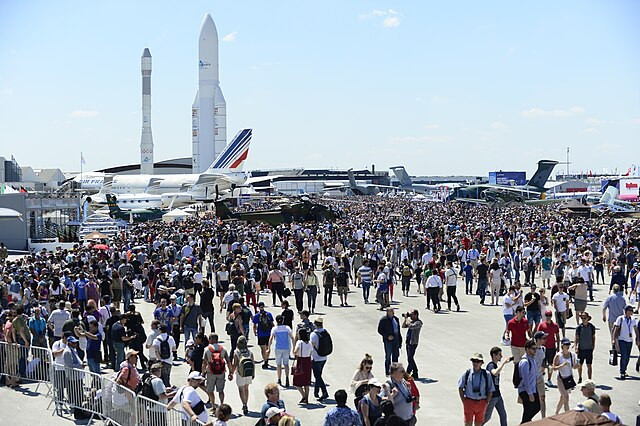French authorities ordered black walls erected around Israeli defense firms at the Paris Air Show on Monday, blocking public access to weapons exhibits and triggering fierce condemnation from Israeli officials, who accused Paris of political bias and commercial protectionism amid ongoing war in Gaza.
The decision, carried out overnight before the show opened at Le Bourget, targeted several Israeli defense contractors including Elbit Systems, Rafael Advanced Defense Systems, Israel Aerospace Industries (IAI), and Uvision. France said the companies had violated pre-established rules banning offensive weaponry at the exhibition due to "very great concern about Gaza," according to French Prime Minister Francois Bayrou.
Bayrou told reporters the action was consistent with France's diplomatic position and emphasized that Israeli companies were previously informed of the limitations. "Given the situation in the region, the extreme tensions ... given France's diplomatic choices, notably concern about Gaza," Bayrou said, the government had to act.
The Israeli Ministry of Defense disputed the timing and intent of the move. "The French are hiding behind supposedly political considerations to exclude Israeli offensive weapons from an international exhibition - weapons that compete with French industries," it stated Monday. The ministry called the decision "ugly and improper."
IAI CEO Boaz Levy compared the blacked-out partitions to historical discrimination. "The dark days of when Jews were segmented from European society," he said.
Shlomo Toaff, head of air defense at Rafael, said he was unable to enter his company's display area. "These weapons are used by the Israeli government in a legal way in order to to protect our people and in order to free the hostages," he told the Associated Press. "We hope that maybe somebody will come to their senses and reopen our show."
According to a French official, four Israeli companies complied with the rules and were allowed to remain open. The walls were constructed only after five others refused to remove prohibited hardware. The decision was made by the General Secretariat for Defense and National Security under the prime minister's office, the official said on condition of anonymity.
Elbit's Meshar Sasson accused the French government of obstructing competition. "If you cannot beat them in technology, just hide them right? That's what it is because there's no other explanation," he said.
The incident drew international political backlash. U.S. Governor Sarah Huckabee Sanders, attending the air show, called the restriction "pretty absurd." Senator Katie Britt labeled it "short-sighted."
The organizer of the air show said it was working to mediate between parties, aiming to "find a favorable outcome to the situation."
While Israeli companies faced black partitions, French-made Rafale fighter jets and cruise missiles were openly showcased. Bayrou acknowledged differing perceptions of Israeli military activity, noting: "The situation in Gaza, it touches, it injures, it repulses a large number of our compatriots, including those who are friends of Israel."
Sylvain Pavillet, a lawyer for the air show organizers, clarified that the French government, not the event itself, has final authority over which countries may exhibit and under what conditions.






